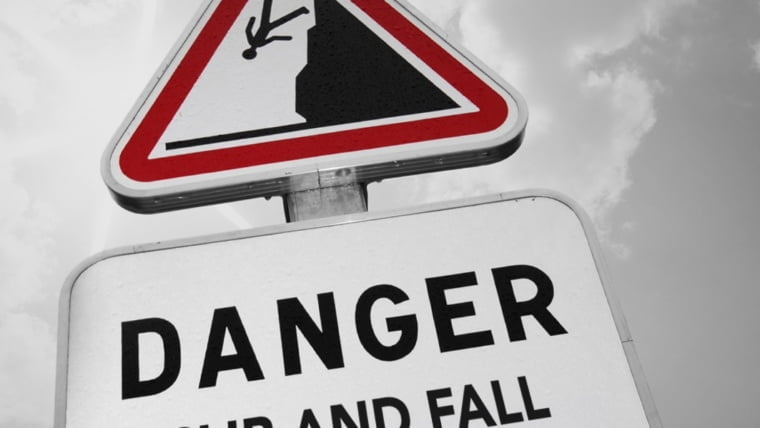Many of our customers at Business Language Services require our certified translation services for the purpose of overseas citizenship applications. Our team regularly assists with official translations of the birth certificates, marriage certificates, death certificates, police certificates (ACRO) and academic certificates that are required for citizenship applications.
Our Marketing Manager’s husband, David, recently underwent the process of applying for Italian citizenship via Jure Sanguinis (birth right). We hope that these notes, based on David’s experience, will help others in the same position.
David’s grandfather (nonno) was born in Italy and, like many Italians in the post-war period, left Italy in search of a better life in Wales. David is extremely proud of his Italian heritage and spent time living and working in Florence after graduation, perfecting his Italian and connecting with his Italian heritage. Gaining Italian citizenship was an important milestone for him, but it did not come easily. Italian bureaucracy can make the process difficult and lengthy, but with the right preparation it can be achieved.
Getting the appointment
The first and most difficult step in the citizenship process is undoubtedly booking an appointment to visit the consulate. If you’re resident in the UK, you can book an appointment at the Prenot@mi website. This is available in Italian and English.
- Access the Portal: Go to the Prenot@mi portal.
- Register and Log In: Create an account and log in to access the system.
- Select Your Consular Office: You will be prompted to choose the Italian consulate that has jurisdiction over the area where you reside. In the UK this could be London, Manchester or Edinburgh.
- Book Your Appointment: After selecting the correct consulate, you can then proceed to book your desired consular service. Citizenship appointments are released on Mondays and Wednesdays at 5 p.m. UK time. Competition for appointments is fierce and they often go very quickly, so patience and persistence are key!
Preparing the documents
While each case is different, applicants will need to produce documents pertaining to their last Italy-born ancestor and each person in line after that. This includes:
Your documents
- Your own birth certificate (long form).
- Marriage certificate (if applicable).
- Divorce decree/order (if applicable).
- Spouse’s birth certificate (sometimes required for marriage registration in Italy).
- Children’s birth certificates (if you plan to register them as well).
Italian ancestor’s records
- Italian birth certificate (estratto dell’atto di nascita from the comune (administrative division) of birth).
- Marriage record if married in Italy (if married outside Italy, a translation will be required).
- Death record (if applicable, from the comune or foreign authority).
Personal civil records (non-Italian)
- Birth certificates (long form, with parents’ names) for all direct ancestors in the Italian line, after the Italian-born ancestor down to you.
- Marriage certificates for each generation in line.
- Divorce decrees/orders (if applicable).
- Death certificates.
Naturalisation records
- Proof that the Italian ancestor did not naturalise before the birth of the next person in line. This is a most critical piece of paperwork and usually includes:
- A letter of non-naturalisation from the National Archives (which searches all records up to 1980) to show that the Italian ancestor never naturalised.
- A letter of non-naturalisation from the Home Office (sometimes called a Letter of No Record of Naturalisation or Letter of Confirmation of Non-Naturalisation) to show that the Italian ancestor never naturalised.
Administrative requirements
- Apostille for all foreign documents (to make them valid abroad).
- Certified translations into Italian of all non-Italian documents.
- Consulate application form(s) (varies by consulate). Check the consulate website for the correct form.
- Proof of residence in the consulate’s jurisdiction (utility bill, council tax bill, etc.).
- Valid passport/ID.
A few important points to keep in mind:
It is common for misspellings to occur in documents that have been transcribed incorrectly or mistyped, or even for Italians to anglicise their names on official documents in order to integrate into British culture. All spellings of names must be consistent and any misspellings addressed before presenting documents. You may also need to contact the General Register Office in the UK for a correction to certificates or contact the comune in Italy for a positivo/negativo to show that the various spellings of a person’s name do in fact relate to the same physical person.
It is not common in Italy for women to take their husband’s name when they marry. It is therefore unusual for the consulate to process your application in your married name unless you provide a deed poll officially changing your name (duly signed, translated and legalised by a notary public) or get a note added to your British passport stating your maiden name and married name. It is best to seek advice from the consulate on this.
While it is tempting to use a third-party agency to help navigate the process and prepare documents, it is perfectly feasible to do it yourself. The advice on the Dual British/Italian Citizenship Facebook Group is invaluable and much cheaper than using a third-party lawyer or agency.
Registering minors
Children under 18
- If you are recognised as an Italian citizen before your child turns 18, your minor children are automatically recognised as Italian citizens together with you.
- They do not need to make a separate application or pay the €600 consular fee.
- You must present their long-form birth certificates (apostilled and translated into Italian) at your appointment.
- If the child was born in the UK, the birth must also be registered in Italy at the relevant comune through the consulate.
Adult Children (18+)
- Once a child turns 18, they must submit their own separate application for citizenship recognition and pay the fee.
- They cannot be included in the parent’s file after reaching majority.
From Spring 2025, a new law (Law 74/2025) came into effect that made changes relevant to minor children of Italian citizens by descent:
- For children born outside Italy to claim automatic Italian citizenship, there are now stricter criteria on the parent’s/grandparent’s status, such as: whether that parent was born in Italy; if born outside Italy, whether they had lived in Italy continuously for at least two years before the child’s birth.
- If neither parent was born in Italy, or the parent born outside Italy did not meet the residence requirement, the child may not automatically acquire citizenship at birth under the new law.
On the day of the appointment
Arrive punctually for your appointment and stand in line at the cittadinanza queue. Show your appointment confirmation (dettaglio appuntamento) and passport before entering through security.
Italian consulate officials in the UK speak English and Italian, although Italian is preferred.
The above-mentioned documents must be presented in original form, with apostille and certified translations as applicable. Photocopies of all documents are also appreciated. If anything is missing, you may be sent home to obtain the correct documents before your application can be processed.
In David’s case, all English documents or certificates presented included:
1. The original copy
2. A photocopy
3. An apostille of the original copy
4. A certified translation
Business Language Services completed all certified translations and these were accepted without question. Business Language Services has over 30 years of experience providing high-quality certified translation services and is a member of the Association of Translation Companies and the Institute of Translators and Interpreters.
In David’s case, all Italian documents or certificates presented included:
1. The original copy
2. A photocopy
Note: The consulate will keep all of the original documents.
Once all the necessary documents and certificates have been presented and checked at the consulate, you are sent to pay fees (in 2025 these amounted to €600) before you leave. The consulate only accepts payment by British debit card (no credit card, no cash, no contactless, no Apple Pay, no Google Pay or others) so make sure you have a British debit card and know the PIN number.
Citizenship costs
Costs can vary depending on personal circumstances, but the following costs give an overview of what you can expect.
| Item | Estimate |
| Application fee (main consular fee) | €600 (approximately £500 depending on exchange rate at time of appointment) |
| Translation (per document) | Around £72 per document for English > Italian certified translation |
| Apostille (paper-based) | £45 per document, plus courier or postage costs |
| Notarisation | Variable, £30-£150 or more per document |
Overall, you might expect the total official costs (excluding legal and/or consultancy fees, travel, courier or postage, etc.) to fall in the region of several hundred pounds up to approximately £800-£1,200 or more, depending on how many documents and translations are needed, plus currency exchange variation.
Getting a passport/ID card
Once your application has been processed and approved by your comune in Italy, your citizenship will be transcribed on AIRE (Anagrafe degli Italiani Residenti all’Estero – Register of Italians Living Abroad). You can access your AIRE records by creating a Fast It account. There’s a handy video tutorial here.
Once your comune has written to you to say your application has been processed/transcribed by them, you can apply for an electronic ID card or passport via your consulate or vice consulate or on the Prenot@mi platform. Passports cost approximately £100 and an electronic ID card (CIE) costs €16.79, plus potential administrative fees.
Summary
While the process can be arduous and time-consuming, it was made easier thanks to the advice on the Dual British/Italian Citizenship Facebook Group and from Business Language Services, who gave invaluable advice on how to present certified translations that would be accepted at the consulate.
If you need a certified translation, visit Business Language Services. It is quick and easy to upload your documents and pay securely online. Please note that apostilles of original documents will need to be arranged directly with a Notary Public before obtaining translations. The Business Language Services team are happy to recommend trusted Notary Publics.
Rules and regulations surrounding the citizenship process may have changed since this article was published. Visit the Italian Consulate website for London, Manchester or Edinburgh for the latest requirements.

